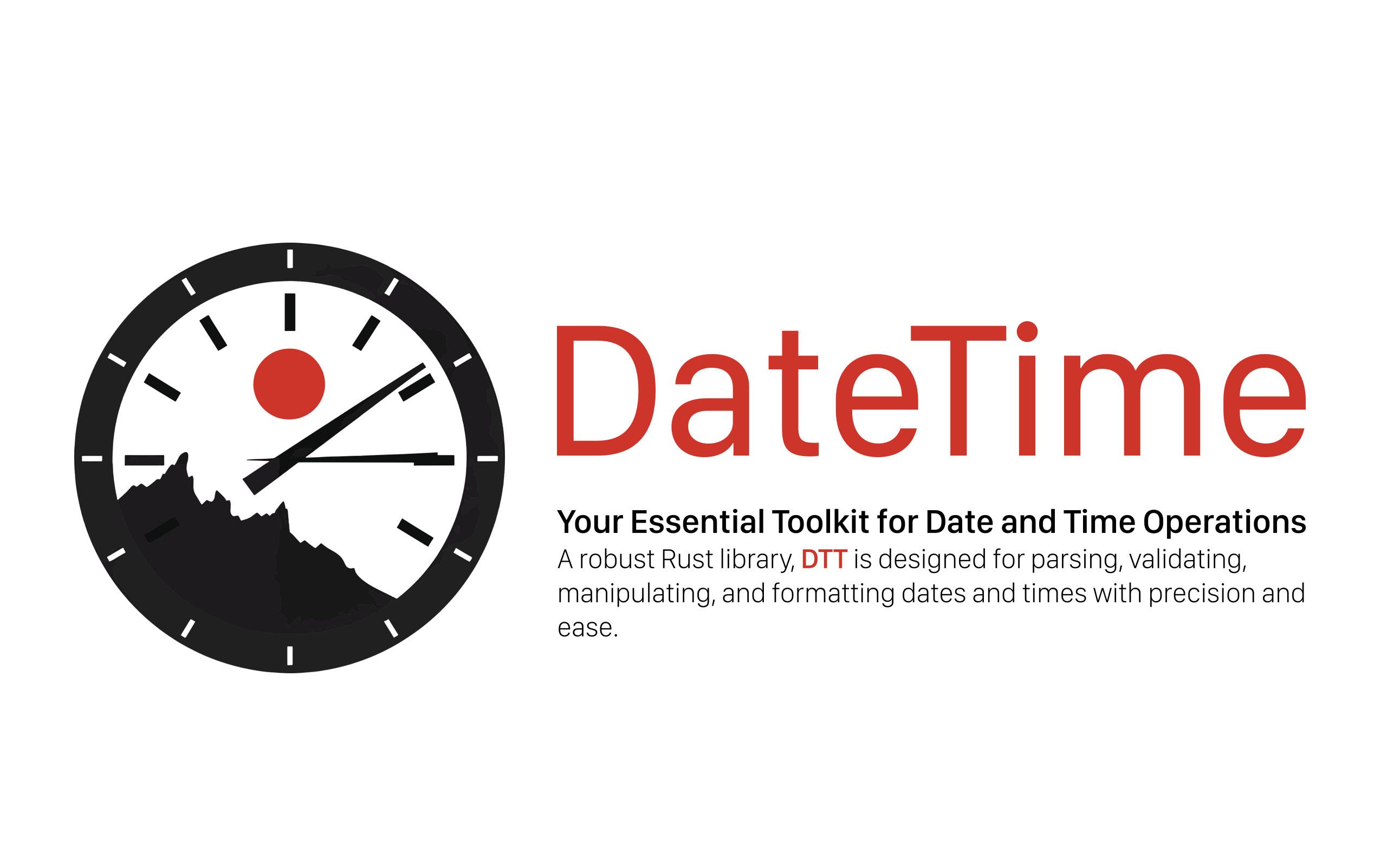Efficient Date and Time Management with DateTime (DTT)
DateTime (DTT) is a comprehensive Rust library for parsing, validating, manipulating, and formatting dates and times. It offers a high level of precision and a wide range of functionalities.
Efficient Date and Time Management with DateTime (DTT)
In the realm of software development, effectively managing dates and times is a common challenge. DateTime (DTT) emerges as a Rust library meticulously crafted to streamline this process, rendering it seamless and straightforward.
What is DTT?
DateTime (DTT) stands as an open-source Rust library, meticulously designed to simplify the way you interact with dates and times. It offers a comprehensive suite of tools for parsing, validating, manipulating, and formatting date and time data. DTT's development prioritizes performance, accuracy, and ease of integration, making it an ideal choice for modern software development projects.
Features
DTT boasts an array of features that empower developers to effortlessly manage dates and times:
- Parsing: DTT seamlessly interprets dates and times from various string formats, converting them into a Rust-friendly structure.
- Validating: DTT's robust validation capabilities provide the accuracy of your date and time data, preventing common errors and inconsistencies.
- Manipulating: DTT provides easy methods for changing date and time data. This includes adding days, comparing times, and more.
- Formatting: DTT offers customizable formatting options to present dates and times in a user-friendly format, catering to your application's specific needs.
Getting Started with DTT
To begin using DTT in your Rust projects, follow these simple steps:
-
Install Rust: To install DTT, you need to have the Rust toolchain installed on your computer. You can install the Rust toolchain by following the instructions on the Rust website.
-
Install DTT: Once you have the Rust toolchain installed, you can install DTT using the following command:
cargo install dtt
- Add DTT dependency to your project: Add the following line to your Cargo.toml file to install the DateTime (DTT) library.
[dependencies]
dtt = "0.0.4"
- Use DTT: Once installed, import the DateTime (DTT) library into your Rust code using the following statement.
use dtt::DateTime;
- Start using DTT: With DTT imported, you can now start utilising its extensive features to manage dates and times in your Rust projects.
Here's an example of creating a new DateTime object with a custom timezone (e.g., CEST):
use dtt::DateTime;
use dtt::dtt_print;
fn main() {
// Create a new DateTime object with a custom timezone (e.g., CEST)
let paris_time = DateTime::new_with_tz("CEST");
dtt_print!(paris_time);
}
We have more examples if you want to understand DateTime (DTT)'s flexibility and power ⧉.
Error Handling
DTT is designed with simplicity and ease of use in mind. Its intuitive API and clear documentation ⧉ make it a breeze to get started and integrate into your projects, reducing development time and effort.
Benefits of Using DateTime (DTT)
Employing DateTime (DTT) for managing dates and times in your Rust projects offers a multitude of benefits:
- Precision in Time-Sensitive Applications: DTT's high accuracy in time calculations makes it ideal for applications where time precision is critical, such as in financial transaction systems, where timestamp accuracy can impact transaction ordering.
- Reduced Development Time and Effort: DTT's API and documentation ⧉ make it easy to use and integrate into your code. This minimises the time and effort required to use any date and time functionalities.
- Enhanced Accuracy and Reliability: DTT's robust validation capabilities provide the accuracy of your date and time data, preventing common errors and inconsistencies. This leads to more reliable and trustworthy applications.
- Streamlined Date and Time Operations: DTT provides tools for parsing, validating, manipulating, and formatting date and time data, which makes it easier to work with and improves code efficiency.
- Simplified Integration: DTT is designed to integrate seamlessly with existing Rust projects, minimizing disruptions and allowing you to easily incorporate its functionalities into your codebase.
- Enhanced Developer Productivity: By reducing the complexity and time involved in managing dates and times, DTT empowers developers to focus on more strategic tasks, boosting overall productivity.
- Ease in Handling Time Zones: With its robust timezone support, DTT simplifies the complexities involved in building global applications that require handling multiple time zones, like scheduling software for international teams.
Embrace Efficient Date and Time Management with DTT
DTT simplifies the way you work with dates and times in Rust ⧉, providing a robust and easy-to-use solution for managing temporal data. With its comprehensive features, intuitive design, and reliable error handling, DTT is your go-to library for streamlining date and time operations in your Rust projects.

